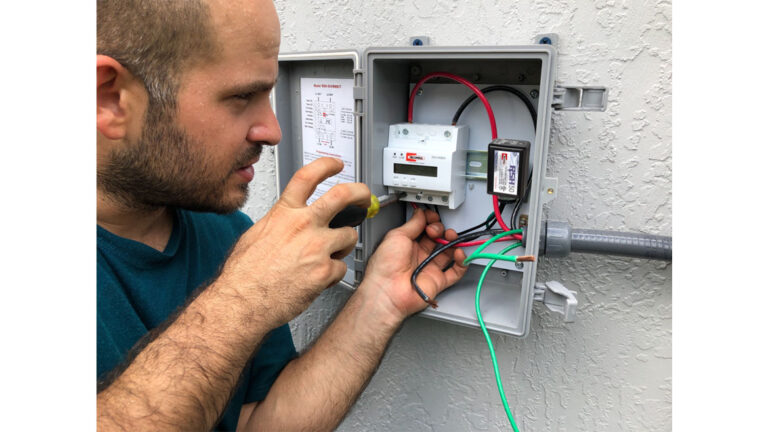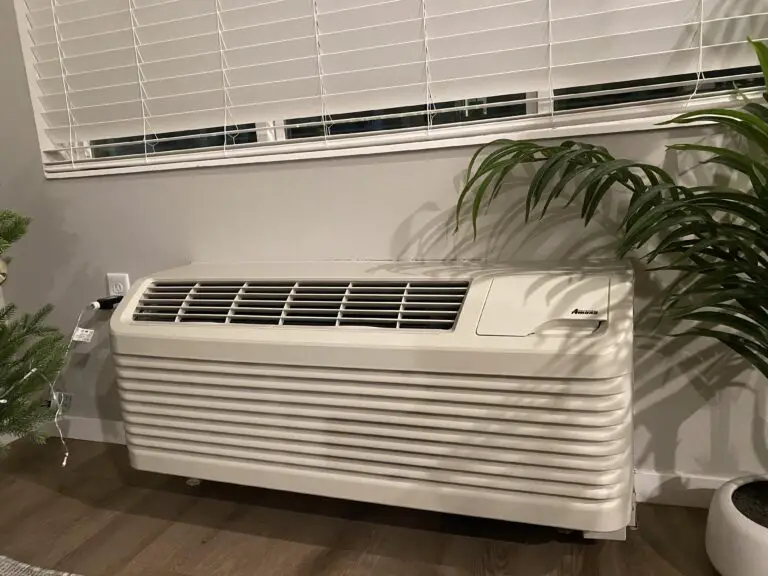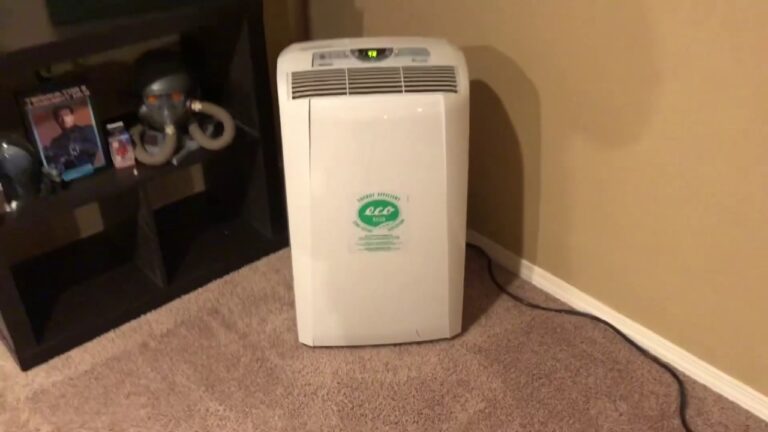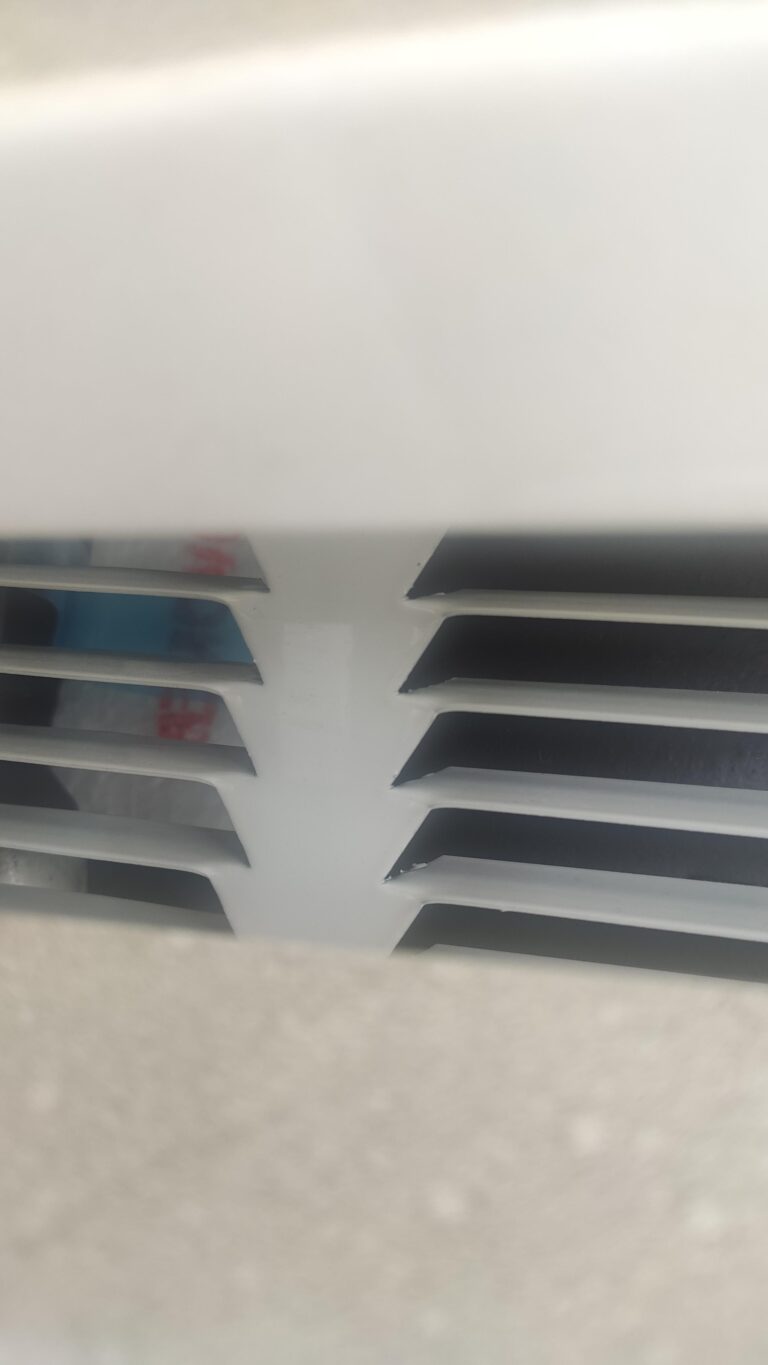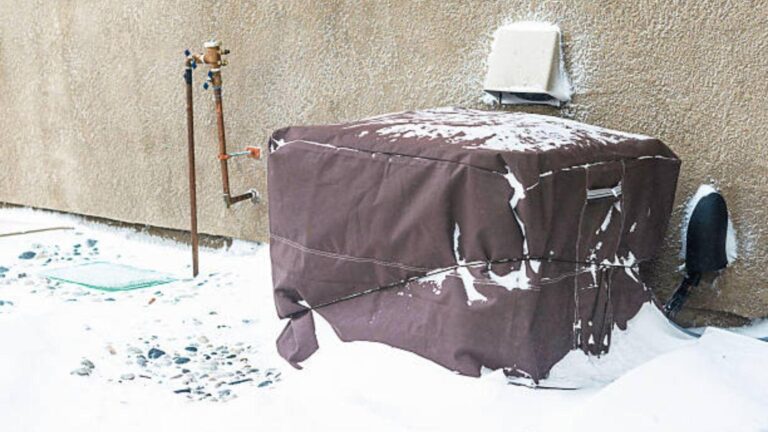How Do I Tell The Tonnage Of My AC Unit: Expert Tips
To determine the tonnage of your AC unit, check the model number on the unit’s nameplate. Typically, the model number includes a series of numbers that indicate the tonnage.
Understanding your AC unit’s tonnage is crucial for ensuring optimal cooling efficiency. Tonnage refers to the unit’s cooling capacity, measured in BTUs (British Thermal Units) per hour. This specification helps you gauge whether your AC can effectively cool your space.
An undersized unit may struggle to maintain comfortable temperatures, while an oversized unit can lead to energy wastage and humidity issues. Knowing the tonnage aids in better maintenance, potential upgrades, and energy savings. Always verify this detail to ensure your cooling system meets your needs effectively.

Credit: www.youtube.com
Introduction To Ac Tonnage
Understanding AC tonnage is crucial for every homeowner. It ensures your home stays cool efficiently. But what exactly does “tonnage” mean in the context of air conditioning?
AC tonnage refers to the unit’s cooling capacity. This is measured in tons. One ton equals the ability to cool 12,000 BTUs per hour. BTU stands for British Thermal Unit. This is a measure of heat.
Importance Of Knowing Tonnage
Knowing your AC’s tonnage helps in several ways:
- Energy Efficiency: Proper tonnage ensures the unit runs efficiently.
- Comfort: Correct tonnage maintains consistent indoor temperatures.
- Cost Savings: It prevents unnecessary energy use, saving money.
Choosing the wrong tonnage can lead to problems. An oversized unit will cool too quickly. This causes frequent cycling, which wastes energy. An undersized unit will struggle to cool your home. This increases wear and tear.
Common Misconceptions
Many people have misconceptions about AC tonnage:
- Bigger is Better: Some think a bigger unit is always better. This is not true. The right size is crucial for efficiency.
- All Units are the Same: Not all units with the same tonnage perform equally. Brand and model can affect performance.
- Tonnage Equals Weight: Tonnage does not refer to the unit’s weight. It refers to its cooling capacity.
Understanding these points helps in making informed decisions. Always consult a professional for the right AC tonnage for your home.
Locating The Nameplate
Understanding your AC unit’s tonnage is crucial. The nameplate holds this key information. This guide helps you find it and understand what it shows.
Where To Find It
The nameplate is usually on the unit’s exterior. Common places include:
- The side of the condenser unit
- Behind the access panel
- Near the electrical connections
Check all sides and corners if you can’t see it immediately. The nameplate is often a metal or plastic tag. It contains vital details about your AC unit.
What Information It Shows
The nameplate provides several important details:
| Detail | Description |
|---|---|
| Model Number | Identifies the specific unit model. |
| Serial Number | Unique number for your specific unit. |
| Voltage | Operating voltage of the AC unit. |
| Tonnage | Cooling capacity of the unit in tons. |
Look for a number followed by letters like “BTU” or “TON”. This indicates the cooling capacity. Use this to understand your unit’s tonnage.
Model Number Breakdown
Understanding the model number of your AC unit is crucial. This helps you determine its tonnage. The model number contains vital information about the unit’s specifications. Here’s how to break it down.
Understanding The Code
The model number on your AC unit is a mix of letters and numbers. Each part of this code tells you something different.
Here’s a quick guide:
- Brand Identifier: The first few letters often indicate the brand.
- Series Number: This part shows the series or product line.
- Capacity Code: This is the most crucial part for tonnage.
- Additional Features: Other letters and numbers show extra features or options.
Tonnage Indicators
The tonnage of your AC unit is hidden in the capacity code. Look for numbers that are divisible by 12. Each multiple of 12 equals one ton.
Here’s a breakdown:
| Capacity Code | Tonnage |
|---|---|
| 24 | 2 Tons |
| 36 | 3 Tons |
| 48 | 4 Tons |
| 60 | 5 Tons |
For example, if your model number is ABC36XYZ, your unit is 3 tons.
Always check the capacity code carefully. This ensures you get the correct tonnage.
Manual And Documentation
Understanding your AC unit’s tonnage is crucial for optimal performance. One of the easiest ways to find this information is through the manual and documentation that came with your unit. These resources provide detailed information directly from the manufacturer.
Checking The User Manual
Your AC unit’s user manual is a treasure trove of information. It contains all the technical details you need. Look for the specifications section. This section usually lists the tonnage, model number, and other key details.
Follow these steps to find the tonnage:
- Find your user manual.
- Open the specifications section.
- Locate the tonnage information.
If you can’t find the manual, you can often download it from the manufacturer’s website.
Manufacturer’s Website
The manufacturer’s website is a valuable resource. You can usually find digital copies of user manuals there. Visit the support or resources section of the website.
Here’s how to do it:
- Visit the manufacturer’s website.
- Navigate to the support section.
- Search for your AC unit model.
- Download the user manual.
Once you have the manual, look for the specifications section to find the tonnage. This method is useful if you’ve lost the original manual.
Using the manual and documentation ensures you get accurate information. It helps you understand your AC unit better and maintain it effectively.
Using Online Tools
Finding the tonnage of your AC unit can be simple with online tools. These tools save time and effort. They are easy to use and accurate. Let’s explore how to use them effectively.
Tonnage Calculators
Online tonnage calculators help you find your AC unit’s size. They are free and available on various websites. These tools use data like your unit’s model number.
Here’s a brief look at some popular tonnage calculators:
| Website | Features |
|---|---|
| AC Tonnage Calculator | Simple input fields, quick results |
| HVAC Tonnage Finder | Detailed analysis, user-friendly interface |
| CoolCalc | Comprehensive inputs, accurate results |
How To Use Them
Using tonnage calculators is straightforward. Follow these steps:
- Visit the tonnage calculator website.
- Enter your AC unit’s model number.
- Provide any additional required details.
- Click the calculate button.
- View your AC unit’s tonnage in the result.
Ensure your model number is correct. Incorrect details can lead to wrong results. These tools are handy for quick checks and confirmation.
Credit: www.reddit.com
Consulting A Professional
Understanding the tonnage of your AC unit can be tricky. Sometimes, you need expert help. Consulting a professional ensures you get accurate information. This can save you money and prevent issues.
When To Call An Expert
- If your AC unit is old and you can’t find the manual.
- If you see no labels or stickers on your AC unit.
- If your AC unit has complex specifications.
What To Expect
When you contact a professional, they will check your AC unit. They will look for the model number and other details. Experts have the tools to measure your AC’s tonnage accurately.
| Step | Description |
|---|---|
| 1. Initial Inspection | The expert will inspect the AC unit. |
| 2. Identifying Model Number | They will find the model and serial numbers. |
| 3. Calculating Tonnage | Using tools, they calculate the tonnage. |
Experts may also suggest maintenance tips. This helps your AC unit last longer. Consulting a professional is a smart choice. It ensures your AC unit runs efficiently.
Importance Of Proper Sizing
Choosing the right size for your AC unit is crucial. Proper sizing ensures your unit works efficiently. A unit that’s too small won’t cool your home well. An oversized unit will cycle on and off too often. This can lead to higher energy bills and less comfort.
Impact On Energy Efficiency
A correctly sized AC unit saves energy. It runs at optimal performance. This reduces electricity usage. Lower energy bills mean more savings for you. An oversized unit uses more power. It cools the house quickly but then shuts off. This constant cycling wastes energy. A unit that’s too small runs all the time. This also increases energy use. Proper sizing ensures the unit runs efficiently.
Comfort Levels
Your comfort depends on the right AC size. A properly sized unit maintains consistent temperatures. It cools the home evenly. You won’t experience hot and cold spots. An oversized unit cools the air too quickly. This leaves the air humid and uncomfortable. A too-small unit struggles to cool. This leaves you feeling warm and sweaty. Proper sizing ensures your home stays comfortable.
| AC Unit Size | Impact on Energy Efficiency | Impact on Comfort Levels |
|---|---|---|
| Correct Size | Optimal energy use | Consistent cooling |
| Too Large | Wastes energy | Uneven cooling |
| Too Small | High energy use | Insufficient cooling |
- Correctly sized AC units run efficiently and save energy.
- Oversized units cycle on and off too often.
- Undersized units run constantly and use more energy.
- Determine the correct size of your AC unit.
- Consult with a professional if unsure.
- Ensure installation follows the proper guidelines.

Credit: www.reddit.com
Frequently Asked Questions
How To Calculate Ac Tonnage?
Calculate AC tonnage by dividing the room’s square footage by 500. Multiply the result by 12,000 BTUs.
How Do I Identify My Ac Unit?
To identify your AC unit, check the nameplate or label on the outdoor condenser. It includes the model and serial numbers.
How Do I Know If My Ac Is 1 Ton?
Check the AC unit label for “1 ton” or “12,000 BTU”. It indicates the cooling capacity.
Conclusion
Knowing your AC unit’s tonnage is vital for energy efficiency. It ensures optimal cooling and lowers electricity bills. Always check the model number or consult your unit’s manual. Regular maintenance and professional inspections can help. Understanding these basics keeps your home comfortable and your system running smoothly.

